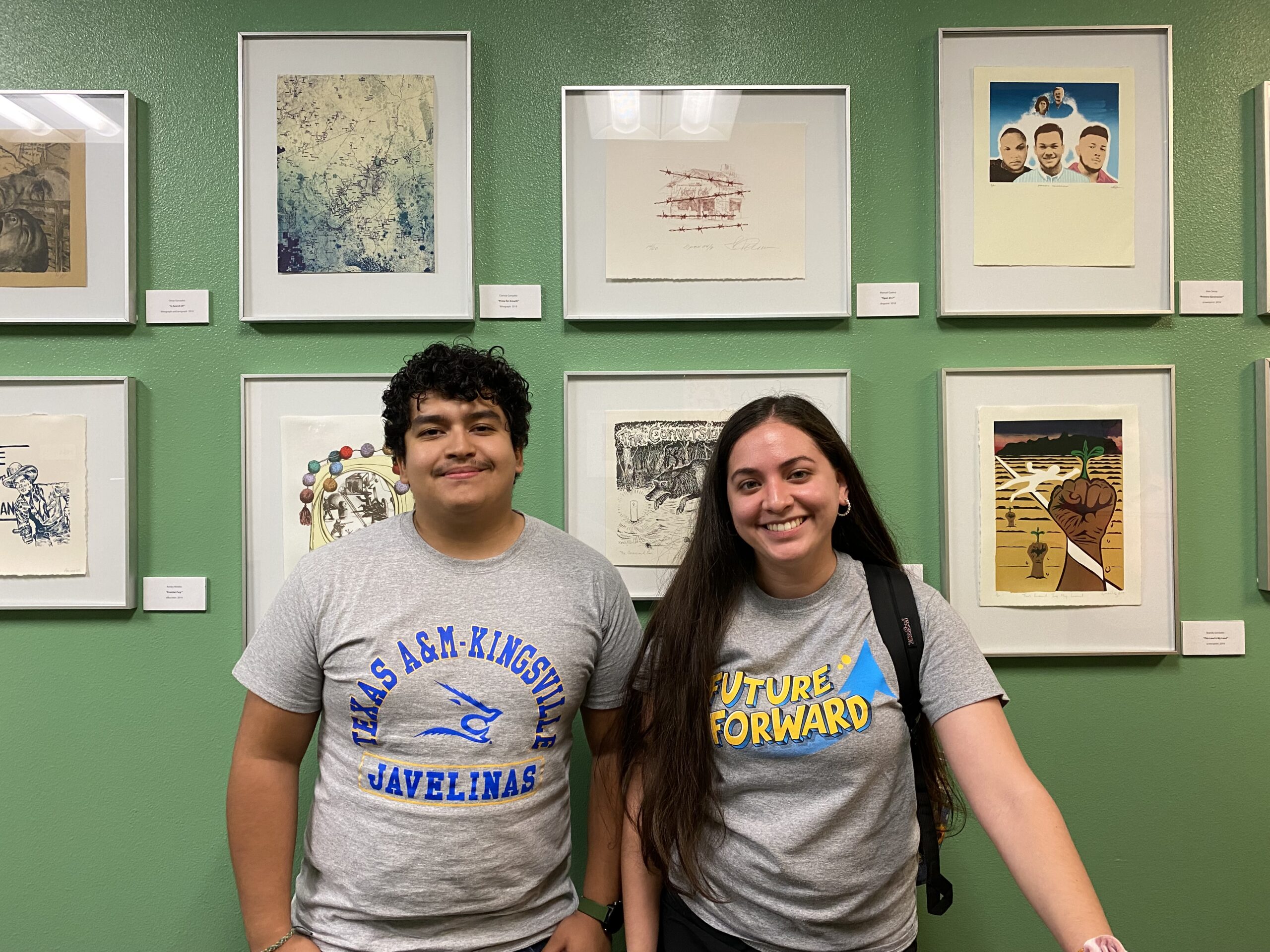TAMUK adds Mexican American Studies Institute
In the northeast corner of the third floor of Rhode Hall, is a green room filled with Chicano art and books about the Chicano Movement.
As of Sep. 1, Rhode Hall is now the home of the Mexican American Studies Institute (MASI), a Hispanic serving institute that was created to educate and inform students on the history of Mexican American individuals in South Texas, the Coastal Bend and the Borderland regions.
“[MASI] is a space for students, faculty, staff, alumni and the Kingsville community,” Associate Professor of History and Director of MASI Dr. Alberto Rodriguez said. “A place where we can help engage with individuals who are interested in learning more about their culture.”
Located in Room 312, MASI is open to the public from 8 a.m. to 5 p.m., Monday through Friday. The goal is to aid students in expanding their knowledge of the history and culture of Mexican Americans.
Rodriguez explained that one of the reasons behind the creation of this institute is to help with Texas A&M – Kingsville (TAMUK)’s retention rates. He felt that students should not only feel represented in classrooms and curriculum, but in a physical place as well.
“At the core, you want to belong to something that is bigger than you, and sometimes universities do not do that well,” Rodriguez said. “This is something we are working on because we have not been doing that enough.”
Not only can individuals stop by to learn about Mexican American culture, but they can also go to relax, unwind or work.
Senior and history major Mariah Mercado utilizes the institute daily.
“I am so excited about the opening of our new Mexican American Studies Institute at TAMUK,” Mercado said. “I can’t wait to see how this new institute will impact students on a day-to-day basis by giving them a safe space to spend time in and interact with faculty and staff.”
She encourages everyone to check the institute out and be immersed in the culture that is shared by a large population of students.
Like Mercado, senior and history major Matthew Almaraz also spends most of his days at the institute.
“I think our university needs something like this to provide a space for intellectual conversation about Mexican American studies and faculty,” Almaraz said. “The institute also provides continuing education on the plight and struggle of Mexican American individuals.”
Almaraz likes the friendly and welcoming atmosphere of the institute. He hopes that everyone around TAMUK gains a sense of belonging from having an institute like this.
Rodriguez says the institute had been in the talks for about two or three years. It started as a conversation with the Hispanic faculty council, then it went over to Dr. Mark Hussey and Dr. James Hallmark. By the time Dr. Robert Vela entered the picture, the plan was sort of already in place and he supported the idea to a new level. Rodriguez recalls that out of all the support he has received, it is the support of Dr. Lou Reinisch, provost, that has been the steadiest.
Additionally, MASI has received support and donations from different faculty members. The art that is hanging on the walls was donated by an art professor, the table in the center of the room was donated by Dr. Hallmark, and the coffee and snacks were donated by different faculty members. Even students have stopped by to drop off décor for the institute.
Rodriguez said there was already a place for ethnic studies, like the institute during the ’70s, but it got lost during the Chicano Movement. He clarified that he is not creating anything new, he is just trying to re-engage it.
He hopes MASI is the match that lights up the spark, and that more institutes are created for different ethnic groups so that everyone across campus feels represented and organized.
“Rodriguez plans on hosting workshops and other cultural events in the future. For more information on MASI, stop by Rhode Hall, Room 312, or contact Dr. Rodriguez at Alberto.Rodriguez2@tamuk.edu. An open house is scheduled for 3 p.m. Tuesday Sept 20.

Congratulations Dr. Rodriguez and to the TAMUK leaders and administration, bien hecho – well done.